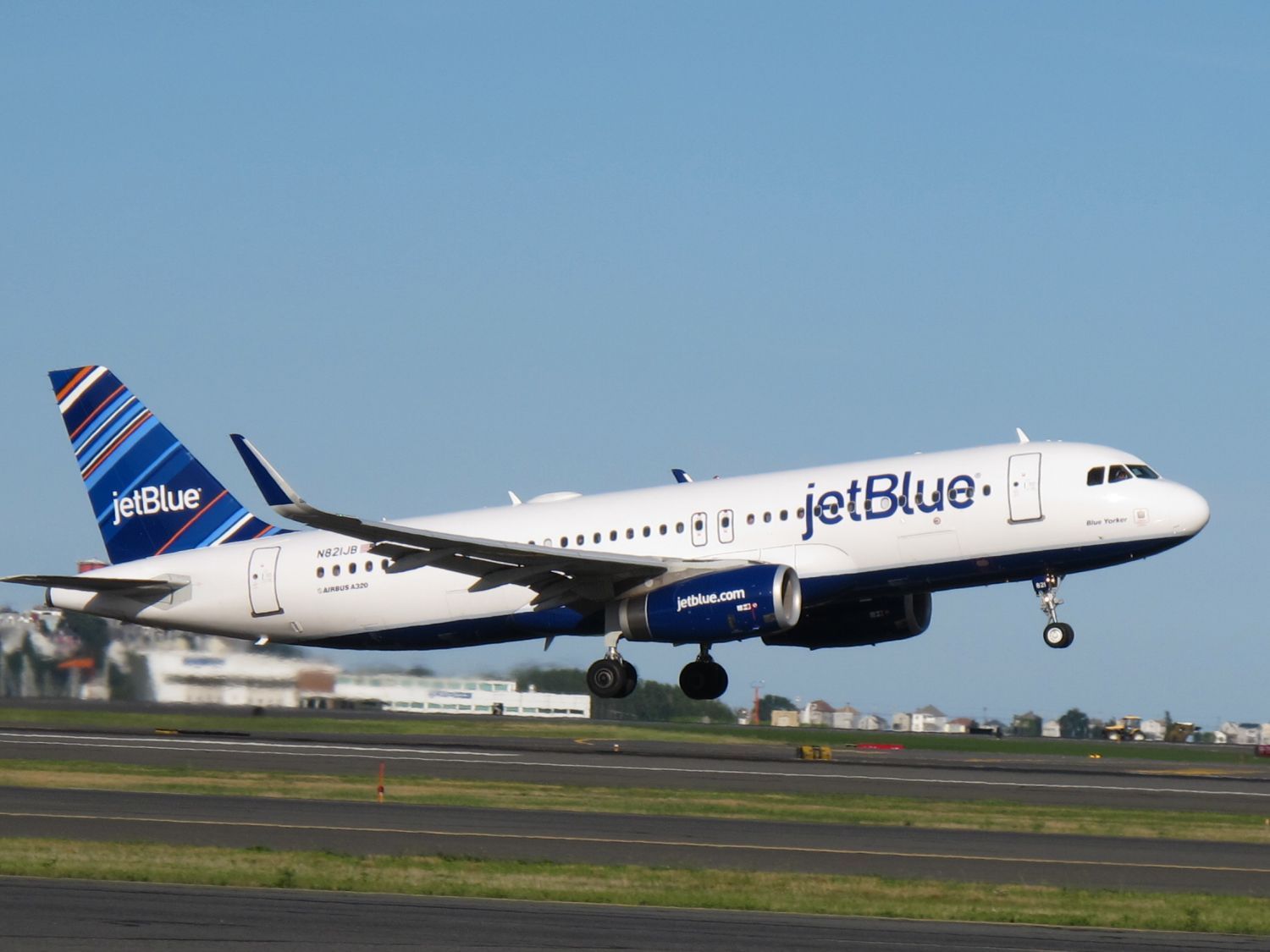JetBlue plans to be the largest user of SAF at New York airports
JetBlue Airways recently announced its project to accelerate the transition to sustainable aviation fuels, to promote the reduction of the environmental impact generated by the airline industry, through an agreement with bioenergy developer SG Preston.
According to a statement released by JetBlue, with their new plans, they are doubling the commitment that both companies had made in 2016. The projection of the new scheme aims for 10% of the total fuel it uses by 2030 to be sustainable aviation fuel (SAF). They also expect to reach 8% by the end of 2023.
JetBlue Airways and SG Preston expect this agreement to result in the first large-scale delivery of U.S.-produced SAF to a commercial airline operating out of New York airports: John F. Kennedy International Airport (JFK), LaGuardia Airport (LGA), and Liberty-Newark International Airport (EWR). The airline will replace 30% of its conventional fuel purchases with SAF, which reduces emissions by 80%.
By 2023, SG Preston plans to deliver about 670 million gallons (more than 2.5 billion liters) of SAF to fuel JetBlue’s New York flights, which would reduce carbon emissions by 1.5 million metric tons.
JetBlue CEO, Robin Hayes, said, «We are past the point of vague climate commitments and corporate strategies. Earlier this year, we set specific, determined, and aggressive emissions targets. And now we are physically changing the fuel in our aircraft to meet these commitments».
Regarding the agreement, Hayes noted that «At JetBlue, we are investing heavily in SAF because we see it as our most promising means to quickly and directly reduce aircraft emissions in the near term. With this expanded agreement with SG Preston, 8% of JetBlue’s total fuel use will be SAF, putting us well ahead of pace to reach our goal of 10 percent SAF use by 2030».

Increased gestures towards sustainable aviation are done by different industry players. In such a scenario, sustainable aviation fuel is a key tool to solve the issue in the short and medium term, while other innovative alternatives to achieve zero-emission are emerging.
SG Preston is working towards the large-scale production of SAF from waste fats, oils, greases, and non-food oilseeds, which is awaiting ISCC (International Sustainability Carbon Certification) certification, an independent global certification body.
For Randy Delbert Letang, CEO of SG Preston, «The company’s relationship with JetBlue is the model for a balanced partnership designed to achieve the sustainability and pricing goals of both the airline and global aviation. The reality of achieving the U.S. sustainability goal – of 35 billion gallons of sustainable aviation fuel by 2050 – is daunting. Engaging and addressing the concerns of all key stakeholders and contributors to the solution is critical to successfully achieving this goal. JetBlue’s continued commitment to SG Preston’s development strategy illustrates continued confidence in our unique approach to this challenge. We are honored by this demonstration of confidence».
JetBlue Airways also has agreements with other companies for the provision of its aircraft with SAF. Such is the case of the partnership with World Energy and World Fuel Services with whom it began using the sustainable aviation fuel from Los Angeles Airport (LAX) in July of this year. In August 2020 it had done the same with the company Neste, which supplies it with SAF for its operations from San Francisco Airport (SFO).
Regarding its commitment to the environment, the company states that «While JetBlue sees UAS as the most promising solution to quickly and directly reduce aircraft emissions in the short and medium-term, it is part of its broader decarbonization strategy that includes aircraft efficiency, fuel optimization, ground power operations, technology partnerships, and carbon offsetting».


Para comentar, debés estar registradoPor favor, iniciá sesión